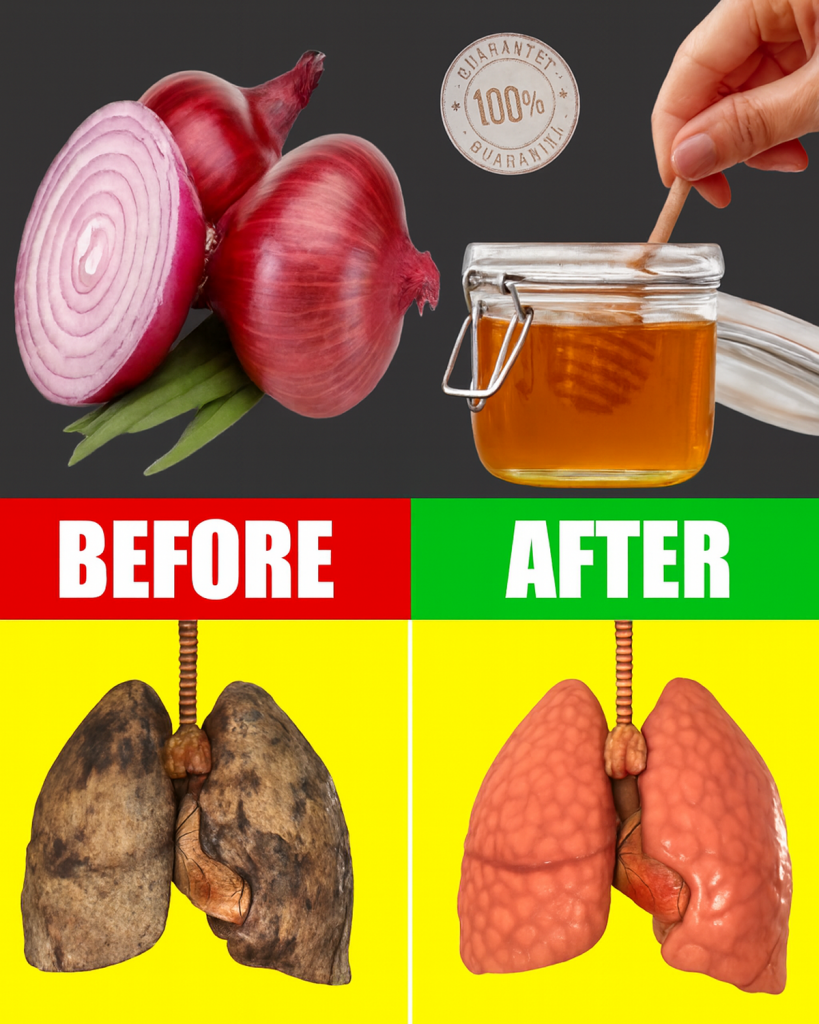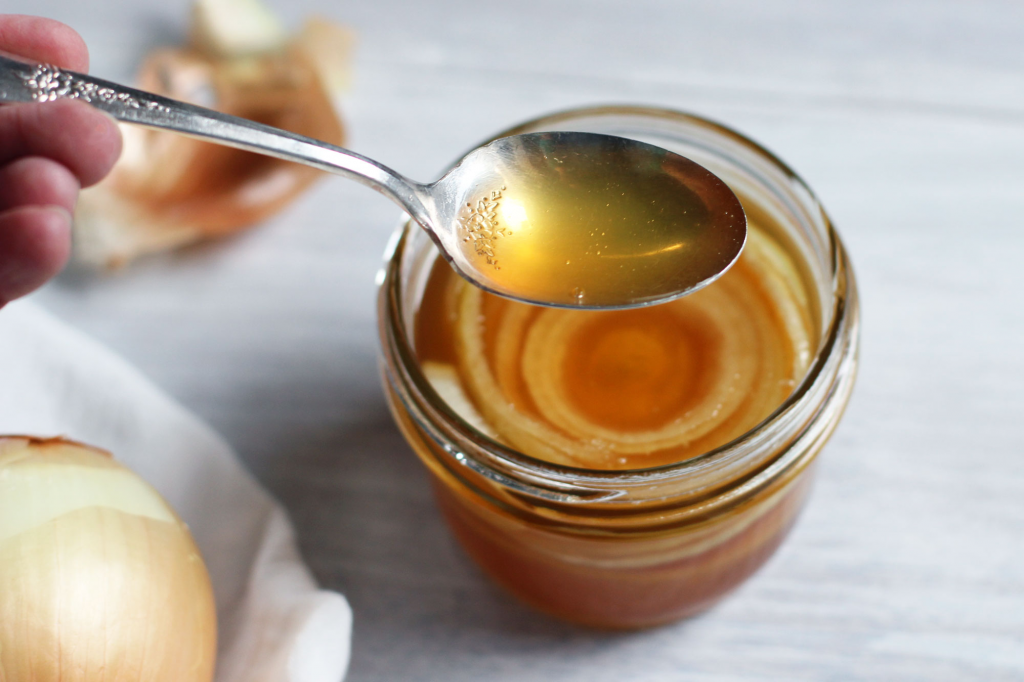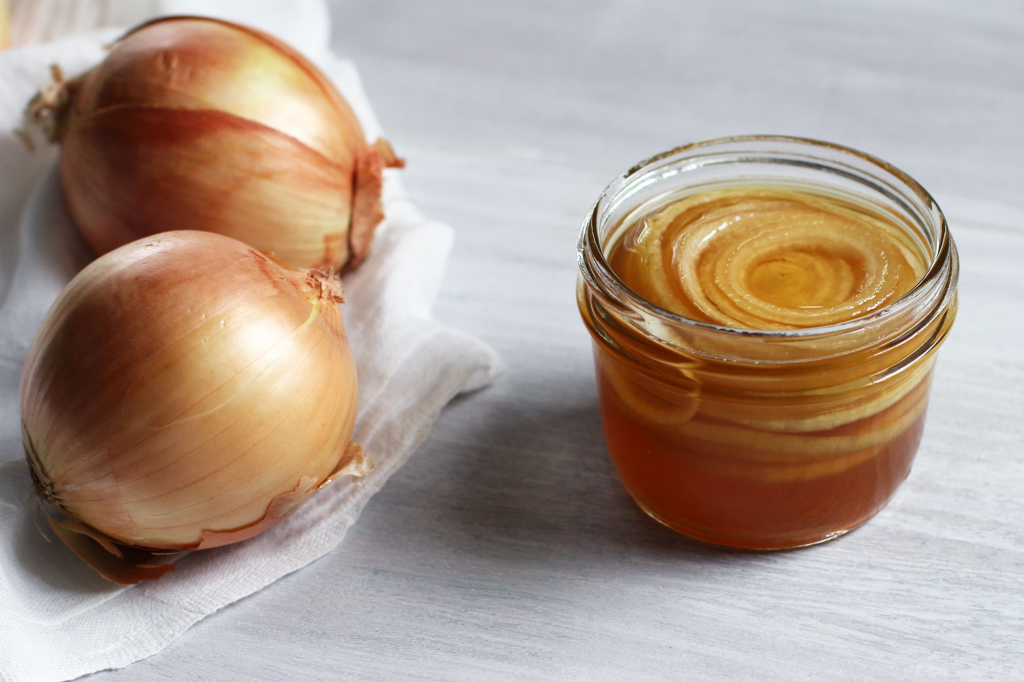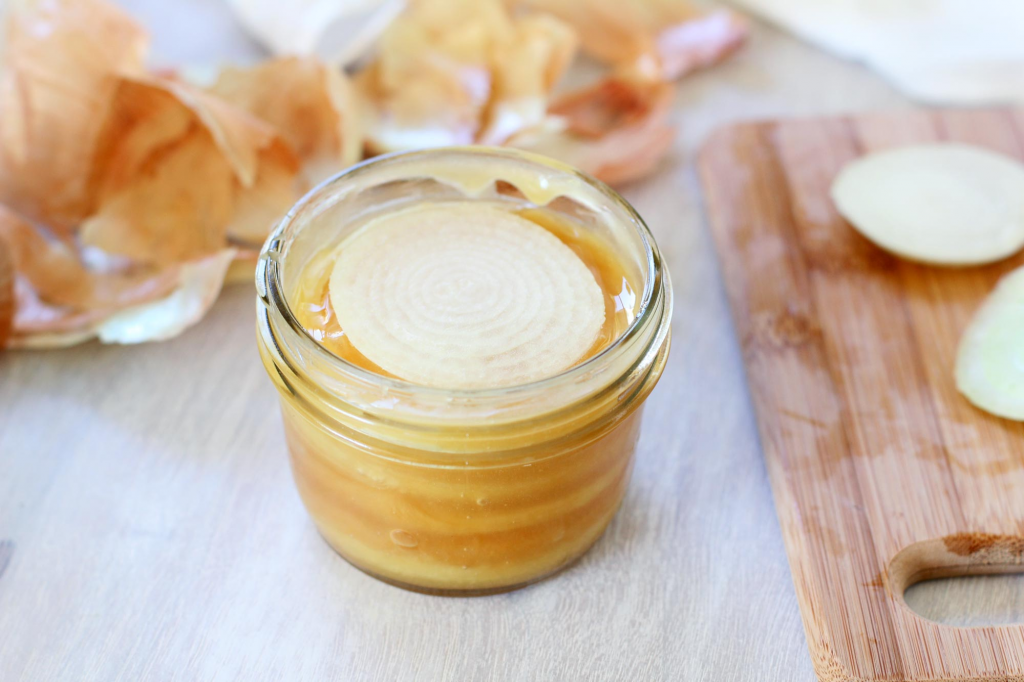Did you know that cough-related illnesses are one of the top reasons people visit their doctors, costing billions in healthcare annually? Yet, across generations and cultures, families have relied on simple home remedies to manage coughs, congestion, and chest discomfort. One of the most famous and time-tested is the combination of onion and honey.
At first glance, the idea may sound unusual—mixing a sharp, pungent onion with the soothing sweetness of honey. But when combined, they create a natural syrup that works like magic. Onion provides antibacterial and anti-inflammatory compounds, while honey coats and soothes the throat. Together, they not only calm persistent coughs but also help clear mucus from the lungs.
In this article, you’ll learn why onion and honey are such a powerful pair, how to prepare this natural remedy, and what science says about it. We’ll also explore real-life experiences, practical tips, and precautions so you can use this simple solution safely at home.

Why Onion and Honey Work So Well Together
The effectiveness of this remedy lies in the synergy of its ingredients:
- Onion: Rich in sulfur compounds, quercetin, and antioxidants, onion helps fight bacteria, reduce inflammation, and act as a natural expectorant (loosening mucus).
- Honey: Known for its antimicrobial and soothing properties, honey coats the throat, reduces irritation, and promotes healing.
When used together, onion and honey create a gentle yet powerful cough syrup that supports both symptom relief and lung health.
1. How Onion and Honey Help Relieve Cough
Coughs can be triggered by colds, flu, bronchitis, or irritants like dust and smoke. Onion and honey address the root causes:
- Soothing action: Honey forms a protective layer over irritated throat tissues.
- Expectorant effect: Onion helps break down mucus, making it easier to expel.
- Antibacterial boost: Both ingredients fight harmful microbes, preventing infections from worsening.
Case Example: In European folk medicine, parents often prepared onion-honey syrup for children with night coughs. Many families reported noticeable relief within a single day.

2. Clearing the Lungs Naturally
A persistent cough is often linked to excess mucus in the airways. Onion and honey help with:
- Reducing phlegm: Onion’s natural enzymes loosen thick mucus.
- Easing breathing: Clearer airways improve oxygen flow.
- Supporting recovery: Antioxidants repair irritated lung tissue.
Everyday Story: A man recovering from bronchitis found that taking a spoonful of onion-honey syrup at night reduced his chest tightness and helped him sleep through the night without coughing fits.
3. How to Make Onion and Honey Cough Syrup at Home
The recipe is simple, requiring only two ingredients and a little patience.
Ingredients
- 1 medium onion (red or white)
- 2–3 tablespoons raw honey

Steps
- Peel and finely slice the onion.
- Place slices in a clean glass jar.
- Pour honey over the onion until fully covered.
- Cover the jar and let it sit for 6–8 hours (or overnight).
- Strain the liquid—this is your natural cough syrup.
Dosage
- Adults: 1 tablespoon every few hours as needed.
- Children over 1 year: 1 teaspoon every few hours.
Important Note: Do not give honey to children under 1 year due to the risk of infant botulism.
4. The Science Behind the Remedy
Modern research supports the traditional wisdom:
- A study published in Pediatrics found honey to be more effective than many commercial cough syrups for soothing night coughs in children.
- Onions contain quercetin, a compound shown to reduce airway inflammation and fight respiratory infections.
- Honey and onion together provide a combination of antimicrobial, antioxidant, and anti-inflammatory benefits.

Nutrition Snapshot (per tablespoon of onion-honey syrup)
| Nutrient | Source | Benefit |
|---|---|---|
| Antioxidants | Onion + Honey | Reduce inflammation, protect tissues |
| Quercetin | Onion | Supports lung and heart health |
| Natural sugars | Honey | Quick soothing energy |
| Sulfur compounds | Onion | Antibacterial, expectorant |
5. Practical Tips and Variations
You can adapt the basic recipe for extra benefits:
- Onion + Garlic + Honey: For stronger antibacterial action.
- Onion + Lemon + Honey: Adds Vitamin C for immunity.
- Onion + Ginger + Honey: Provides warming relief for chest congestion.
Storage: Keep the syrup in the refrigerator for up to 3 days. Make small batches for freshness.

6. Safety and Precautions
While natural, this remedy isn’t suitable for everyone.
- Children under 1: Never give honey.
- Allergies: Avoid if allergic to onion, honey, or related plants.
- Medical conditions: People with diabetes should monitor intake since honey contains natural sugars.
- Persistent symptoms: If cough lasts longer than 10 days or is accompanied by high fever, consult a doctor.
Do’s and Don’ts Table
| Do’s | Don’ts |
|---|---|
| Use raw, organic honey | Give honey to infants |
| Let mixture sit overnight | Rely on syrup alone for chronic illness |
| Take regularly during colds | Use if allergic to onion/honey |
| Combine with rest, hydration | Ignore severe or prolonged cough |

7. Real-Life Experiences
Generations across Europe, Asia, and the Middle East have sworn by this simple remedy. Families often share stories of how onion-honey syrup helped children sleep peacefully or reduced the need for pharmacy cough syrups. Its continued popularity shows how powerful and trustworthy nature’s remedies can be.
Conclusion
The onion and honey remedy is more than an old wives’ tale—it’s a time-tested natural solution backed by both tradition and science. By soothing the throat, clearing mucus, and supporting lung health, it offers quick relief from cough and congestion.
Quick FAQs
- Can it really work in one day? Many people notice relief within hours, though results vary.
- How often can I take it? Every few hours as needed, in small spoonfuls.
- Can I store it long-term? Best used fresh—keep for up to 3 days in the fridge.
Disclaimer: This article is for informational purposes only and does not replace professional medical advice. Always consult a healthcare provider if symptoms are severe, persistent, or linked to chronic conditions.




